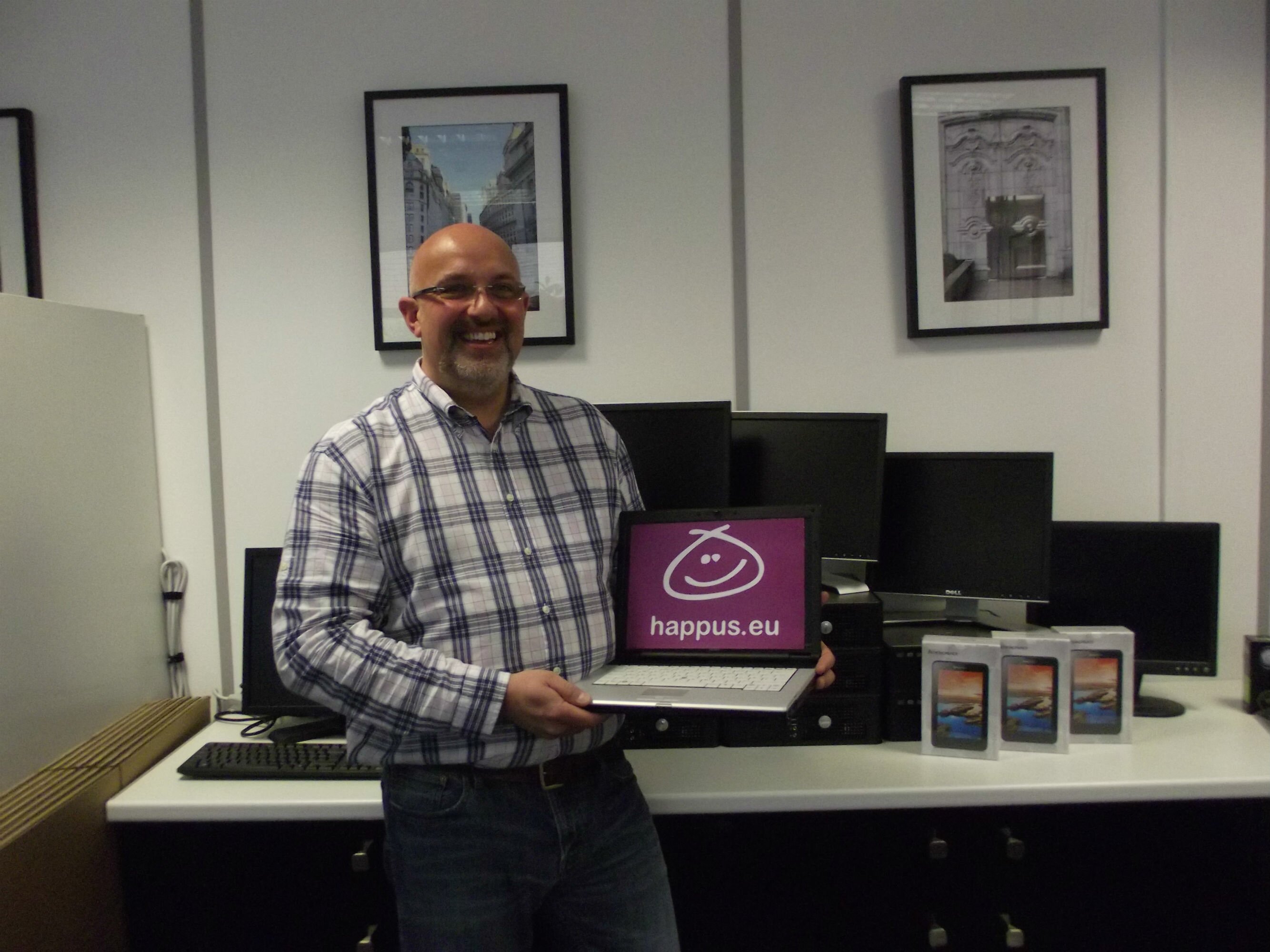Interview: David Williams, MD of Happus

by Nicholas Fearn , January 4
Dave Williams is the founder and managing director of Happus, a Caerphilly-based affordable hardware provider looking to get people online. We speak to him about his business and digital inclusion.
What do you and your company do?
We supply affordable hardware and internet access to people who are on benefits, have low income and digitally excluded.
This is vastly important as there are thought to be 12.6 million people in the UK who don’t have the skills to be able to use computers and 1.2 million businesses that don’t have an internet presence.
In the mix of this, government services are all being driven online – such as benefits and taxes. So if you’re not digitally included, you can end up missing out on things.
Why and when did you decide you’d be the man to fix this problem?
We started when Martha Lane Fox kicked off Race Online 2012. They were focused on the skills side of things but didn’t have the hardware. So we sat down and created Happus with the help of Microsoft.
At the end of 2013, we got to a point where the business I was involved then wanted to go off in one direction, and I wanted to do this.
We were encouraged by housing associations and broadband companies to put something together to fix the issue of digital inclusion. For me, I enjoy it. I love seeing people benefit from using the internet.
Are there any similar organisations out there trying to get people online?
Microsoft’s Get Online at Home scheme still exists, which I used to run. But it’s really limited with the range of products it sports. Because it’s Microsoft, it won’t work with Android or Apple.
And it’s very disjointed from a customer’s point-of-view. A lot of customers will ring us two, three, four times to build up a relationship and feel comfortable with what they’re going to purchase, whereas the other scheme is more focused on giving out devices and that’s it.
What’s a normal working day like for Happus?
I’m all over the country. I visit housing associations, community projects, charities, libraries, councils and governments – Scottish, central and so on – to reinforce what we’re about.
From an office point of view, the guys are in there taking calls from customers to assist them with technical issues and are taking in new orders. We also have a tech guy who helps with back-end technical queries.
What’s been your biggest win and your biggest obstacle?
Our biggest win was probably last year, and that was the Connected Housing Initiative based in London. Fourteen of the biggest housing providers all interviewed people and organisations looking to get people online, and we came out on top. That’s allowed us to go from four or five housing associations to a few hundred.
Our biggest obstacle is getting to the people who need to be using tech. Because most are offline, you have to do it through traditional techniques, such as using the press and distributing leaflets.
Where do you see yourself in five years?
We’ve got bigger plans to do other products and services that fit into this sector. We’re very keen to be helping out small businesses as well as individuals, which we hope will happen as time goes on.